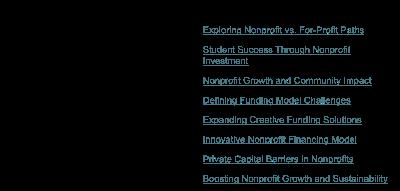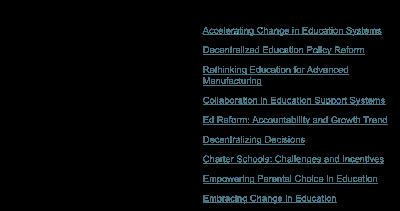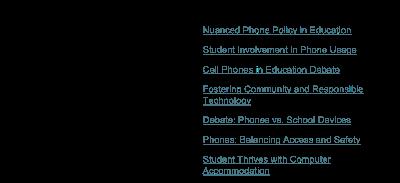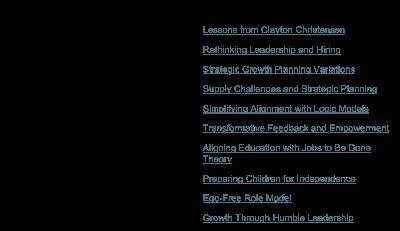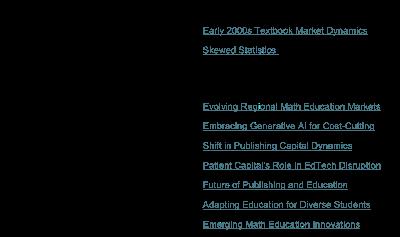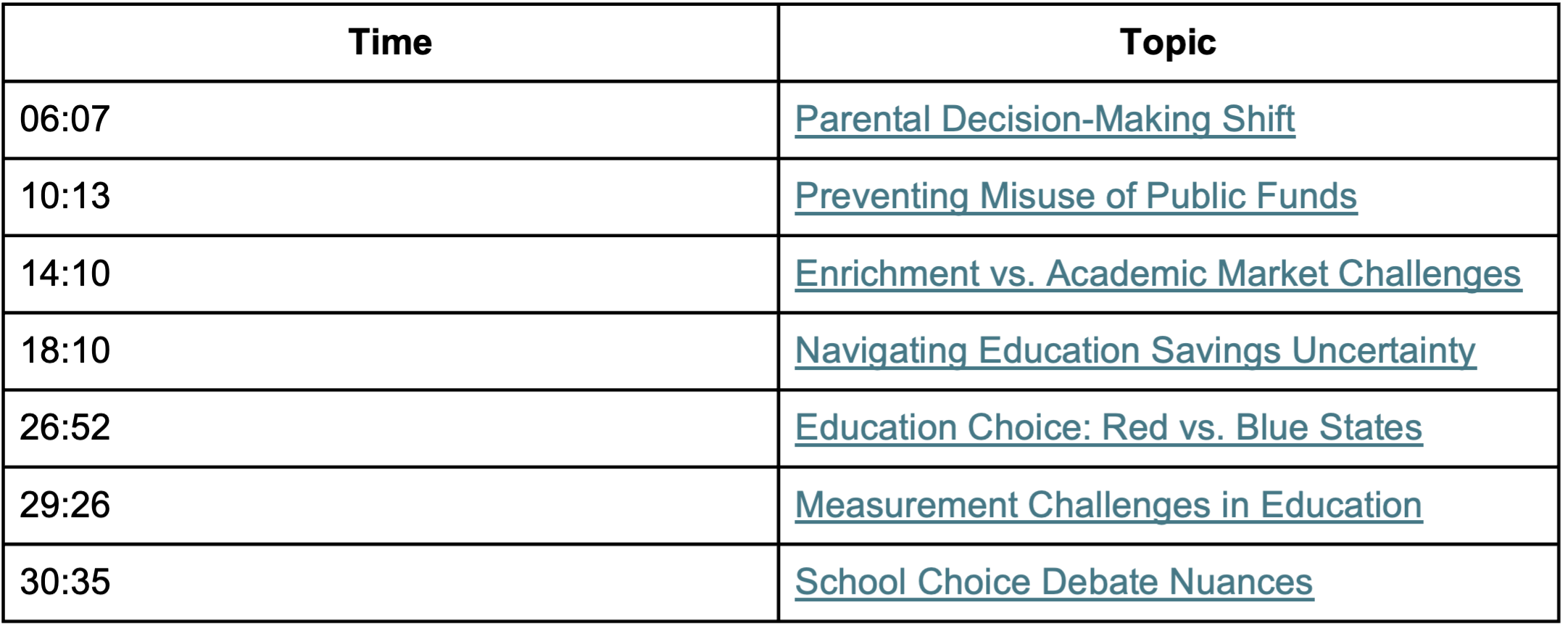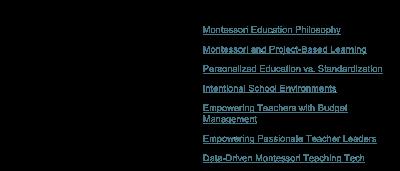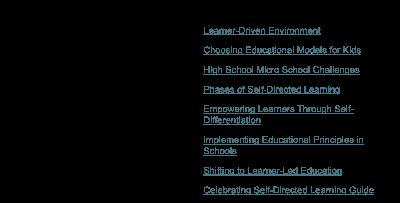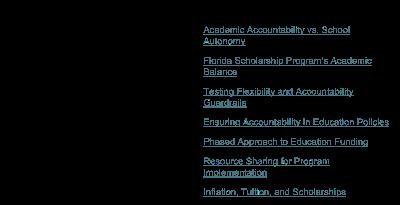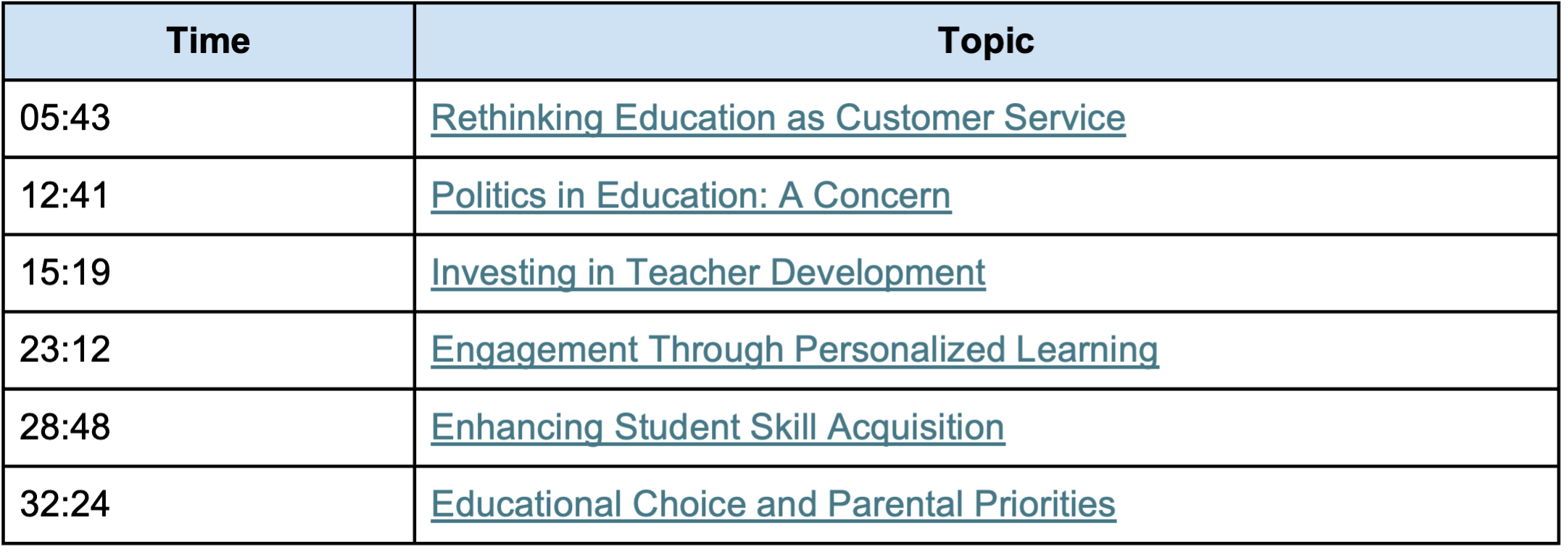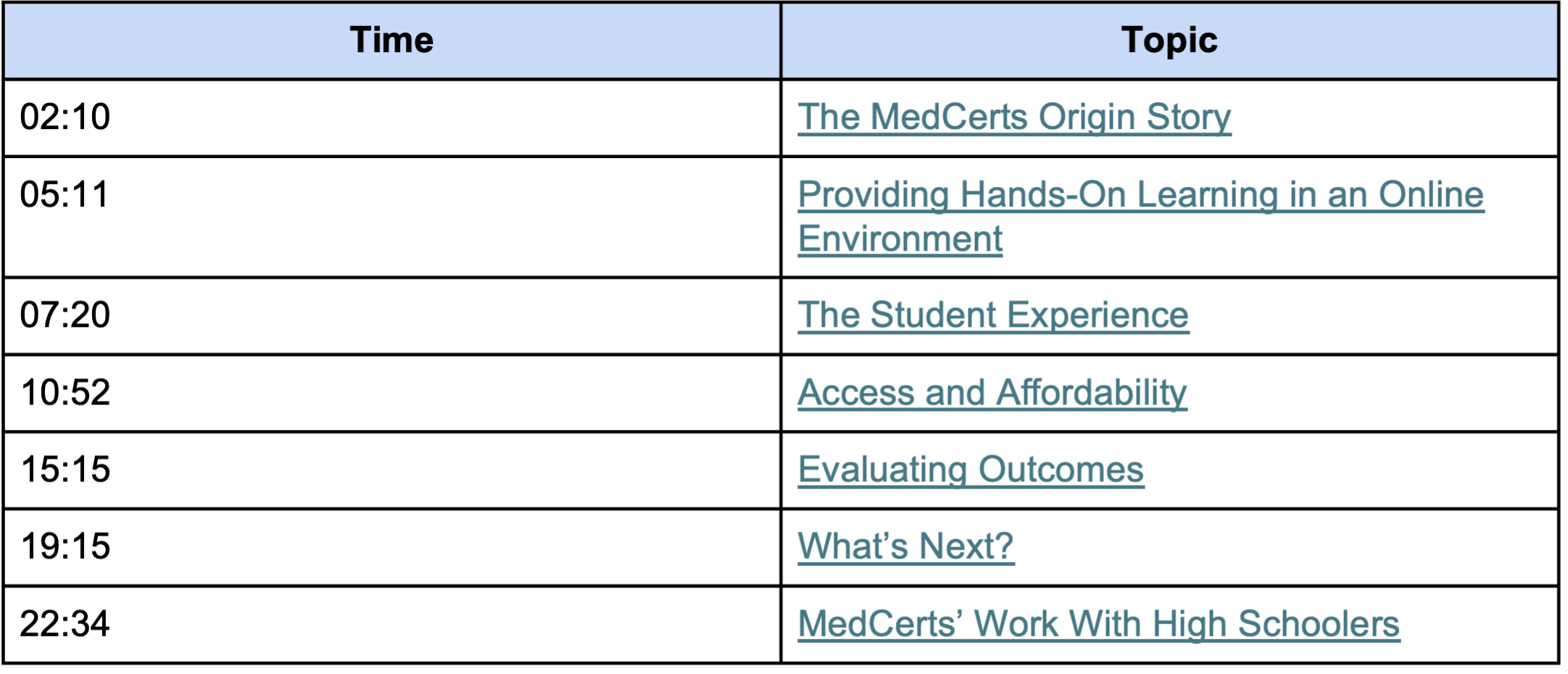The State of Educational Choice
Description
Andrew Clark, president of yes. every kid., joined me to discuss the current landscape of educational choice in the United States. The conversation delved into the rise of Education Savings Accounts (ESAs), specifically their widespread adoption and impact on public schooling and education spending. Clark shared insights from his experiences as a lobbyist and argued for the popularity of universal ESAs and the importance of ensuring their successful implementation. The discussion also touched upon accountability within the schooling system, potential pitfalls, and the importance of empowering families to make educational choices.
Michael Horn
Welcome to the Future of Education. I'm Michael Horn. And you're joining the show where we are dedicated to creating a world in which all individuals can build their passions, fulfill their potential and live a life of purpose as they define it. And to help us think through what that looks like and how we get there, I'm delighted that we have Andrew Clark. He's the president of yes. every kid. We'll learn more about that and their vision for how we advanced truly this learner-centered future in this conversation ahead. But first, Andrew, great to see you. Thanks for being here.
Andrew Clark
Thanks. Thanks for having me.
Michael Horn
Yeah, no, you bet. So, like, before we dive in, right. And talk about the work you do, just like think it'll help folks to understand the journey you've taken into this conversation around educational choice, specifically working in education along with the work of what, yes. every kid. does, which of course, it's a 501c4 organization. You don't see those quite as often in education. We see a lot of C3s, so we'll dive into that in a moment. But your purpose really is unleashing the extraordinary potential of every kid by treating them with dignity, empowering them to make decisions for themselves and give voice to every parent, student and teacher who shares that goal. So love to hear your journey into that work and what that work itself looks like.
Andrew Clark
Yeah, of course. So, yeah, 501c4 is a lobbying organization and I am a lobbyist by nature. I'm not an education guy at all. And I like to say education came looking for me. I didn't go looking for it. But the way that that happened is I was working in Arizona, working on state budget issues, and at the time, ESAs were being hotly debated. So there was a small ESA program in the state, one of the very first that have ever passed, in fact, the first. And the debate over the expansion of that program had people thinking it was going to go to the ballot and be a big fight.
Andrew Clark
And so people were asking if we'd be willing to fund that initiative. And I just didn't know a lot about education. And so we started doing a lot of research to see if that was worth getting engaged on because the implications of education spending are significant on state budgets, as you know. And in doing that, what shocked me is when you put together what I'd consider, the more classically Democratic arguments about education and the more classical Republican arguments, the public essentially rejected both arguments pretty soundly.
Michael Horn
Say more.
Andrew Clark
Yeah. So, you know, the traditional argument from Democrats has essentially been public schools are grounded in the community. They just need more money. Right. And if I can just have more money, they'll be fine. And you know, public's great with investing in public education, but they don't think that's the end all be all and they don't think that things can go unchanged. Whereas the Republican argument was essentially like, hey, public schools are terrible and they just need a whole lot of competition. That competition is going to force excellence and test scores and that's what we want.
And the public is dubious on test scores and they don't like the kind of competitive nature of it. Like none of that really resonates either. And so put those two arguments up against each other, there really wasn't any constituency being like, yes, that's what I want.
Michael Horn
Super interesting.
Innovative Policy Strategies Needed
Andrew Clark
To me, that was eye opening going, how do you have a space in which the two competing ideas are both unpopular? As a lobbyist, that's a really weird phenomenon. It just made me say, hey, I think what's going on in this space actually doesn't make any sense. And there's an opening to do something much more innovative and novel that people will actually enjoy. And so that's kind of what led to ultimately starting to run some experiments on different types of policies that we could talk about. But I can give you two examples. One of the things I saw early on is if a program in education was universal versus being low income, it was way more popular with the public, like 35% more popular. And essentially no advocacy group was working on that to the degree that I would have expected. And so I was like, hey, why don't we start working on bills that are universal and just saying, if it's a low income bill, we're just going to reject it.
We're just going to be opposed to it, even though we support more freedom generally. And as you can imagine, for a lot of school choice advocates, that irritated the crap out of people. But I'm like, I'm going to reject your bills. That was novel at the time. And there's a couple other policy areas like that where I just over index to saying like, why don't we just do things that people like and that make good economic sense and good educational sense? And let's just bank on the fact that if people see benefit in it, they're going to vote for it, they're going to re-elect people that do that and that's going to have a more transformational effect than advocating for something people don't want. Which sounds intuitive, but it was relatively novel at the time. And that ultimately led to me working with some other people and together we all created yes. every kid. And that's what we do. We just lobby for laws like that and try to get them in place.
Michael Horn
Super interesting. And you do the work beyond Arizona now it's nationwide, right?
Andrew Clark
Absolutely. Yep. We work in about 36 states right now.
Michael Horn
Yeah. And I guess the reason it's counterintuitive, as I would think about it, is a lot of folks might say like, yeah, we agree, you know, universal may be the goal or yes, that's going to make it more popular, but we have a win right now. We can impact this population, let's go for it. And they accuse you, I guess, of being against incrementalism toward that goal or something like that.
Andrew Clark
That's certainly my reputation in the space. I would argue everything we're doing is incremental. It's just a question of where you're going to draw those lines and what you're going after. And I think education is particularly influenced by this rise of Taylorism, which is this philosophical backdrop to the industrial revolution that basically said people, people don't matter, processes are what matter and we can optimize processes and everything just becomes a top down exercise. I think the people that go into education carry that mentality or that culture into the space. And that's true whether you're on the programmatic side, you know, you're trying to actually put schools together, or if you're on the advocacy side, you think I'm going to do this thing because academics think it's wise or think tanks thinks it's wise. And I'm going to impose that. Whereas in most spaces that are bottom up, you go the other way.
You're like, what do people see benefits in? What are customers going to gravitate to? And you design around that bottom up feature that just there's just not a lot of people that have that ethos in education.
Michael Horn
Space, from a job speed on landscape through my work that I hear the logic there for sure. So one of the big things that you all have been working on and pushing, you mentioned it briefly, these ESAs, education savings accounts, this notion not just of school choice, but educational choice more broadly. It's something that my audience is certainly familiar with. We've talked a lot about it in the show, so. But I think, you know, 2025, we're having this interview, beginning of the year. Where are we nationally on ESAs? What's the state of choice? I think there's like 11 states maybe with universal choice. But is that right? Who are they? What does that even mean?
Andrew Clark
Yeah, I would say the world is transformed in my view anyways. So the original thesis for a lot of this is hey, we've got a very again Taylor top down education center today where the government says in law you as a family will put your kid in the public school or we will send you to jail. And then inside of that school we're going to dictate how the day goes for you. And it's all very carefully orchestrated. And what we said at the time when we started back in 2018, 2019 was we just need a way out, just an exit, a right of exit to go try something else. So if that system doesn't work for you, no problem, let's get out. And that was the, a lot of the premise for these original universal ESA accounts, which is now up to a dozen states.
Michael Horn
A dozen states. Okay.
School Choice Programs Surge Nationwide
Andrew Clark
Yeah. And I would say, you know, you've got about 40% of kids in America that have access to some kind of private school choice prog



